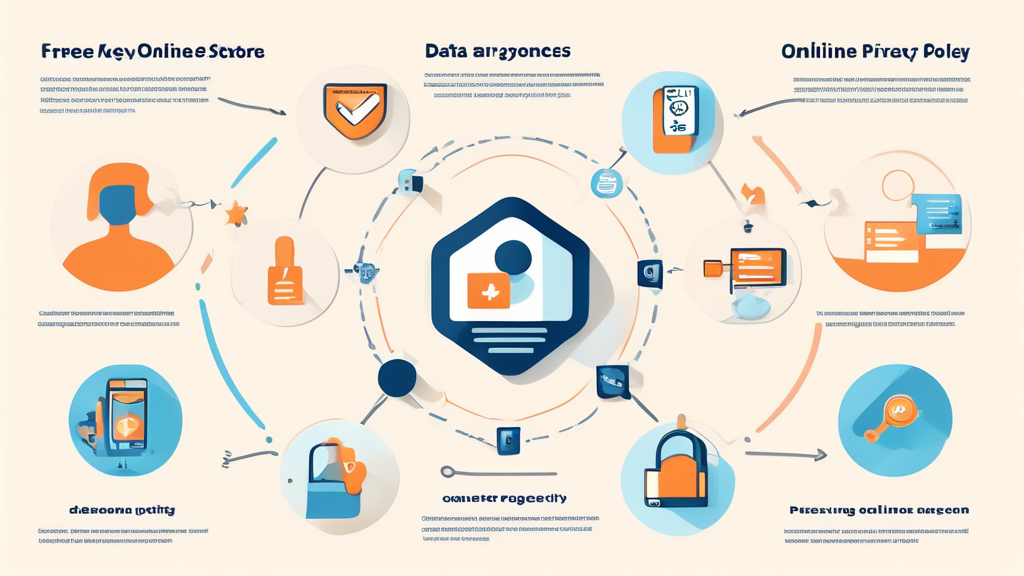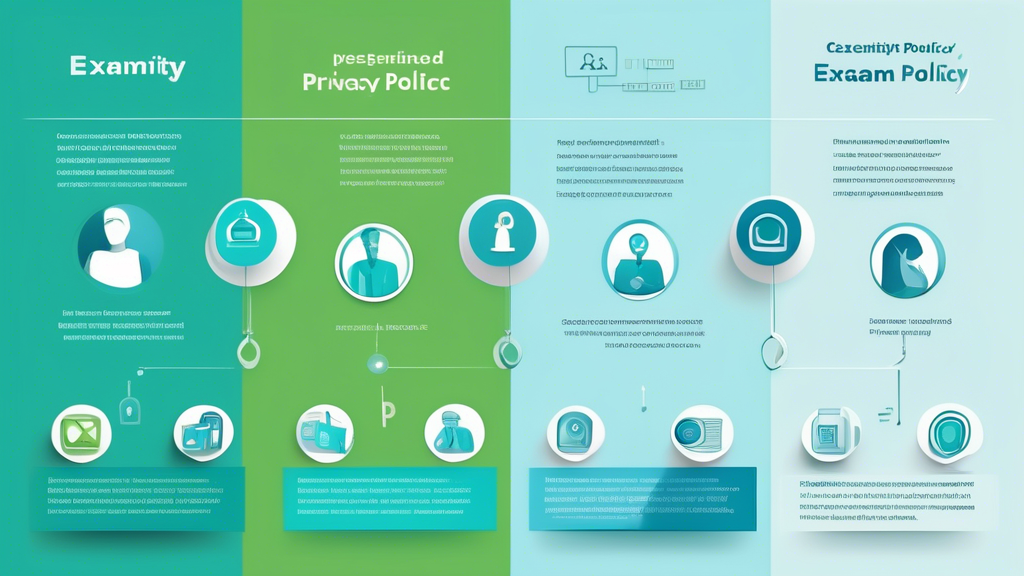Understanding Your Privacy Settings at https myaccount google com
In today’s digital age, safeguarding your personal information is more crucial than ever. With numerous online services requiring your data, understanding how to manage your privacy settings can help you take control of your information. At https myaccount google com, you have the ability to customize your privacy settings tailored to your needs. This platform not only allows you to control who sees your information but also empowers you to maintain your digital footprint.
This comprehensive guide will walk you through the essential steps to navigate the Google Account Management interface, ensuring you can efficiently access and modify your privacy preferences. From adjusting location settings and ad personalizations to implementing vital security features such as two-step verification, you’ll learn how to maximize your online safety.
By understanding your privacy settings at https myaccount google com, you can significantly enhance your online security and regain control over your personal data. Join us as we explore key privacy settings, best practices for maintaining privacy, and how to stay informed on policy updates to make your online experience worry-free.
Navigating to https myaccount google com: A Step-by-Step Guide
In today’s digital age, managing your online privacy is paramount. Making sure your personal information remains secure and that your preferences align with your usage is crucial. At the center of this management is your Google Account, accessible via https myaccount google com. This guide will help you navigate your way through the Google Account Management interface, allowing you to effectively locate and manage your privacy settings.
Introduction to the Google Account Management Interface
When you access https myaccount google com, you enter a streamlined hub where you can manage your entire Google experience. The interface is designed with user-friendliness in mind, making it easy for individuals of all tech backgrounds to understand and utilize its various features. The account management interface offers a broad array of options, allowing users to control settings related to privacy, security, and communication preferences.
Accessing Your Privacy Settings: Logging In and Locating the Privacy Options
To access your privacy settings, follow these steps:
- Visit the Website: Open your web browser and navigate to https myaccount google com.
- Log In: If you are not already logged into your Google account, enter your email or phone number associated with your account and follow the prompts to log in.
- Find the Privacy Options: Once logged in, you will see various options on the left-hand side of the interface. Click on “Data & personalization” to access a wide range of privacy options.
Within the Data & personalization section, you will find key options including Activity controls, Ad customization, and the ability to manage sensitive personal data.
Highlighting Key Features Available in Your Google Account Settings
The https myaccount google com portal offers several key features designed to enhance your privacy management:
- Activity Controls: Here, you can manage what kind of data Google collects while you use its services, including web and app activity, location history, and YouTube history.
- Ad Personalization: Customize how ads are displayed to you by managing the information Google uses to show more relevant content.
- Download Your Data: You have the option to download a copy of your data if you wish to keep backups or review what information Google has collected.
- Account Security: Quick access to security features such as password management, recovery options, and two-step verification can be found in this section.
Additionally, Google provides insights into how your data is used and offers tools to help you better understand and control your privacy settings.
Navigating to https myaccount google com is the first step towards taking charge of your online privacy. By logging in and locating your privacy settings, you can begin to take control of your personal information and understand how it impacts your digital experience. With an intuitive interface and powerful management tools at your fingertips, it’s now easier than ever to prioritize your privacy online.
Key Privacy Settings Available at https myaccount google com
Managing your privacy online is more important than ever, especially as technology continues to evolve and data collection practices become more sophisticated. At https myaccount google com, Google provides users with a comprehensive suite of privacy settings designed to help you control your data, keep your information secure, and personalize your online experience. In this section, we will explore some of the key privacy settings available at https myaccount google com, offering you a clearer understanding of how to manage your digital footprint.
Overview of Primary Privacy Settings
When you access your Google Account settings, you’ll notice several primary privacy options that allow you to manage your experience. These settings include:
Location Settings
Your location data can be both helpful and invasive. By accessing the Privacy section of your Google Account, you can manage how your location data is collected and used. Using your location helps Google provide personalized services such as location-based recommendations, but it can also lead to unintended privacy breaches.
- **Manage Location History:** You can turn off or delete your Location History to prevent Google from tracking where you’ve been.
- **Google Maps Personalization:** Control your location settings to improve recommendations while keeping unwanted tracking at bay.
Ad Personalizations
Google uses your data to show you more relevant ads based on your interests and online behavior. If you’re uncomfortable with this level of personalization, you can manage your ad settings directly at https myaccount google com.
- **Ad Settings:** Opt-out of personalized ads if you prefer a more generic experience.
- **Manage Interests:** Review and modify your ad preferences to better align with your comfort levels.
Understanding and Managing Your Personal Information
Your personal information is the foundation of your digital identity. Google provides several tools for managing this sensitive data directly from your account settings.
Updating Personal Information
At https myaccount google com, you can easily update your personal information to ensure it is accurate. This includes:
- **Name, Email & Phone Number:** Keep your contact information updated to aid in account recovery or if you need to communicate with Google support.
- **Profile Picture:** You can also manage your profile picture, which may appear in various Google services.
Removing Personal Information
If you find that certain personal details are outdated or no longer relevant, you can remove or delete them. This also extends to review which apps and services have access to your information and revoke permissions as necessary.
The Importance of Security Features
Privacy and security go hand-in-hand at https myaccount google com. As data breaches become increasingly common, protecting your account is crucial.
Two-Step Verification
Activating two-step verification (2SV) is one of the most effective ways to bolster your account security. With this feature enabled, even if someone guesses your password, they will still need access to your secondary verification method (like a mobile device) to access your account.
- **Setup Options:** Choose from various 2SV methods, including SMS codes, Google Authenticator, or security keys.
- **Keep Your Recovery Options Updated:** Ensure that you have a recent phone number and recovery email on file.
Account Recovery
Even with robust security measures, it’s vital to have a backup plan in place. Google offers various recovery options to regain access to your account in case of a lost or forgotten password.
- **Recovery Information:** Ensure your recovery email and phone number are current to expedite the recovery process.
- **Security Questions:** Consider setting up security questions that you’ve previously answered for additional verification steps.
In conclusion, understanding the key privacy settings available at https myaccount google com is essential for safeguarding your personal data while enjoying Google’s wide range of services. From managing your location settings and ad preferences to updating your personal information and enabling crucial security features, knowledge is your first line of defense in protecting your privacy online. Regularly reviewing these settings can help you maintain control over your data and enhance your overall online security.
Best Practices for Maintaining Your Privacy on https myaccount google com
In an increasingly digital world, maintaining your privacy is more essential than ever. Understanding how to effectively manage your privacy settings on https myaccount google com empowers you to control what information you share and with whom. This section outlines best practices that will help you safeguard your personal data while using Google services.
Regularly Review and Adjust Your Privacy Settings
One of the most effective ways to maintain your privacy is to regularly review your privacy settings. Google routinely updates its services and policies, which can affect how your data is collected and used. By making it a habit to check in on your settings every few months, you can ensure that they reflect your current privacy preferences.
Start by visiting https myaccount google com privacy to perform a Privacy Checkup. This tool guides you through your privacy settings step-by-step, allowing you to make informed decisions about what you want to keep, change, or delete. Look out for options such as:
- Activity controls: Review your web & app activity, location history, and YouTube history to manage what data Google retains.
- Ad Settings: Opt-in or opt-out of personalized ads to control your ad experiences.
- Shared data: Examine and adjust what data you’ve shared with third-party apps and services.
Stay Informed About Privacy Policy Updates
Google’s privacy policies may change from time to time, and it’s important to stay informed. This helps you understand how these changes could impact your privacy. To follow updates, consider the following strategies:
- Subscribe to updates: Register your email with Google to receive notifications about policy changes directly to your inbox.
- Follow Google’s official blog: Keep an eye on the Google Blog for announcements and detailed discussions about any significant updates.
- Review the Privacy Policy periodically: Make it a practice to read through Google’s Privacy Policy at least once a year.
By staying alert to policy changes, you can promptly adjust your settings to maintain optimal privacy according to any new guidelines.
Utilize Additional Tools and Resources
In addition to managing your privacy settings directly through https myaccount google com, there are various tools and resources available that can enhance your online privacy and security:
- Google’s Security Checkup: This tool evaluates your account’s security status, highlights potential vulnerabilities, and offers suggestions for strengthening your account security.
- VPN Services: Consider using a Virtual Private Network (VPN) to encrypt your internet connection, helping to protect your online activity and personal information from prying eyes.
- Privacy-Focused Browsers: Browsers like Brave or Firefox offer robust privacy features, such as ad blockers and tracking protection, making them a good complement to your Google services.
- Educational Resources: Refer to Google’s Safety Center for tips and guides on how to keep your account secure across all services.
Enable Two-Step Verification
Enabling two-step verification (2SV) can significantly enhance your security on https myaccount google com. This feature adds an extra layer of protection by requiring not only your password but also a second form of verification, typically sent through a text message or authenticated using an app. Here’s how to enable it:
- Go to Security settings.
- Look for the “Signing in to Google” section.
- Select “2-Step Verification” and follow the prompts to set it up.
This simple step can help prevent unauthorized access to your account, even if someone manages to obtain your password.
Be Mindful of Third-Party Apps
Review and manage the third-party apps connected to your Google account. Some apps may request access to your personal information, and you should be cautious about granting such permissions. Here are some tips:
- Regularly review your connected apps from the Security settings.
- Remove access for any apps that you no longer use or trust.
- Be wary of apps that ask for more permissions than necessary for their functionality.
By taking control of your connected applications, you minimize the risk of data sharing that you might not be comfortable with.
Conclusion
In conclusion, maintaining your privacy on https myaccount google com involves more than just adjusting settings; it’s a continuous process. By proactively reviewing your settings, staying informed about policy changes, and utilizing additional security tools, you can safeguard your online privacy effectively. Embrace these best practices as part of your routine to enhance not only your own privacy but also your overall digital well-being.
Conclusion
Understanding and managing your privacy settings at https myaccount google com is crucial in today’s digital age. By regularly navigating to your Google Account Management interface, you can take control of your online presence, ensuring that your personal information is protected according to your preferences. With an array of key privacy settings at your fingertips, such as location settings, ad personalizations, and data sharing options, you have the power to curate what information is shared and with whom.
Moreover, adopting best practices—like regular reviews of your privacy settings and staying informed about policy updates—can significantly enhance your online security. Implementing security features like two-step verification and knowing how to recover your account are essential steps every user should take.
Ultimately, being proactive about your privacy at https myaccount google com not only empowers you but also contributes to a safer online environment. As technology evolves, remaining vigilant and informed will help you navigate the complexities of digital privacy effectively.









